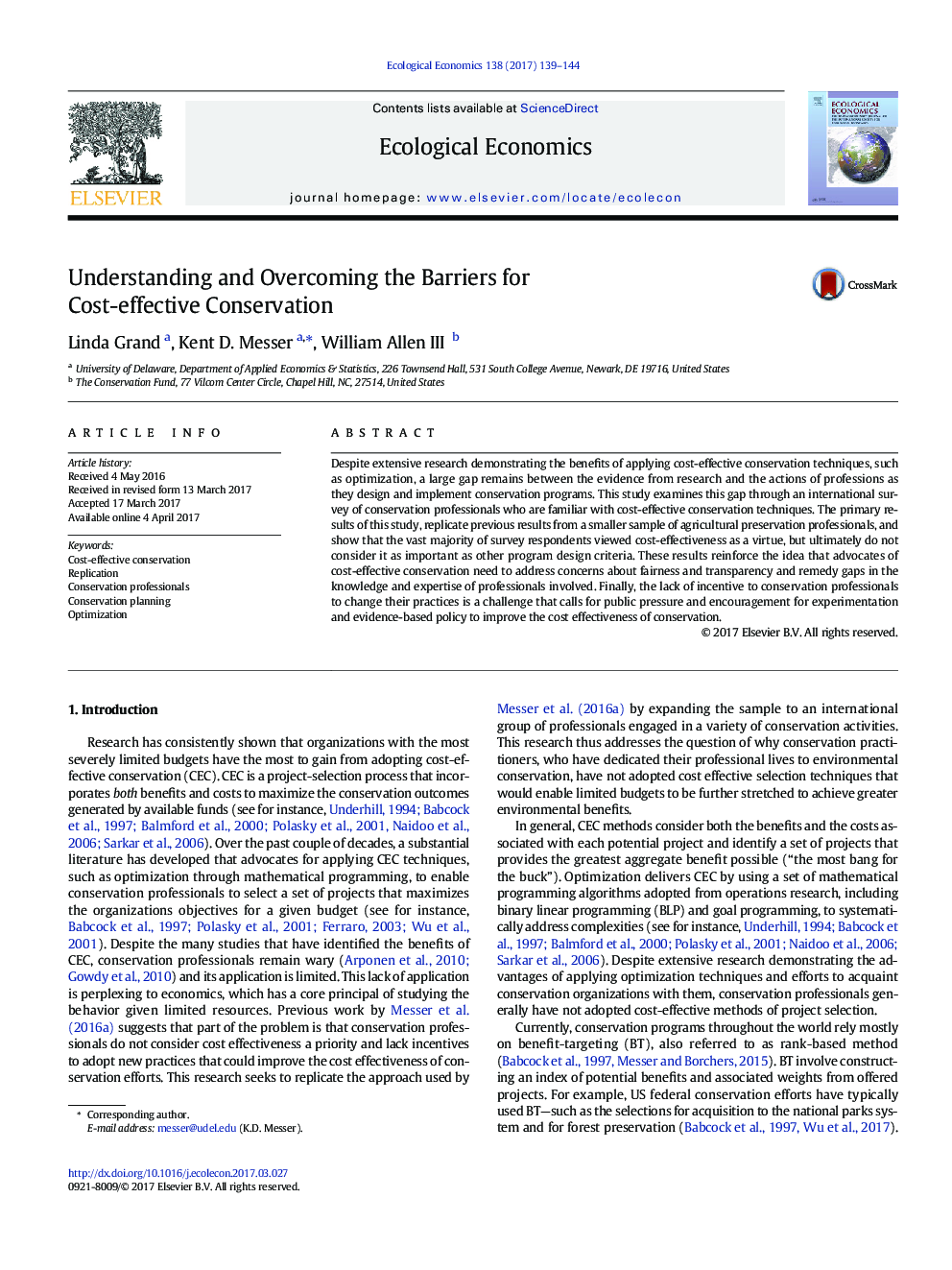| Article ID | Journal | Published Year | Pages | File Type |
|---|---|---|---|---|
| 5048738 | Ecological Economics | 2017 | 6 Pages |
•Cost-effective conservation (CEC) is not widely practiced despite its potential.•To find out why, we surveyed an international sample of conservation professionals.•91% of respondents believe that CEC is a good idea, but rank it a low priority.•Respondents report the lack incentives as a key barrier preventing CEC approaches.•Willingness to adopt CEC rises 23% when software and training are offered.
Despite extensive research demonstrating the benefits of applying cost-effective conservation techniques, such as optimization, a large gap remains between the evidence from research and the actions of professions as they design and implement conservation programs. This study examines this gap through an international survey of conservation professionals who are familiar with cost-effective conservation techniques. The primary results of this study, replicate previous results from a smaller sample of agricultural preservation professionals, and show that the vast majority of survey respondents viewed cost-effectiveness as a virtue, but ultimately do not consider it as important as other program design criteria. These results reinforce the idea that advocates of cost-effective conservation need to address concerns about fairness and transparency and remedy gaps in the knowledge and expertise of professionals involved. Finally, the lack of incentive to conservation professionals to change their practices is a challenge that calls for public pressure and encouragement for experimentation and evidence-based policy to improve the cost effectiveness of conservation.
